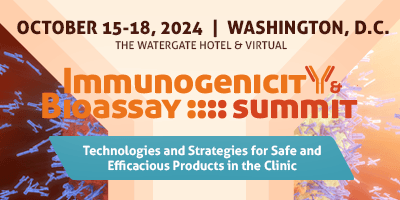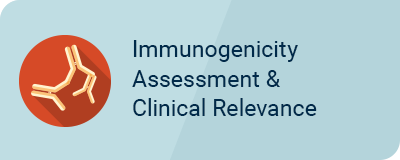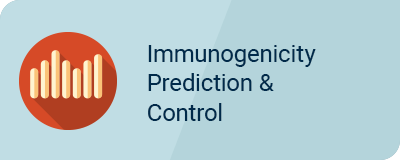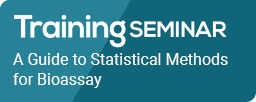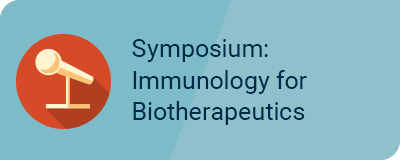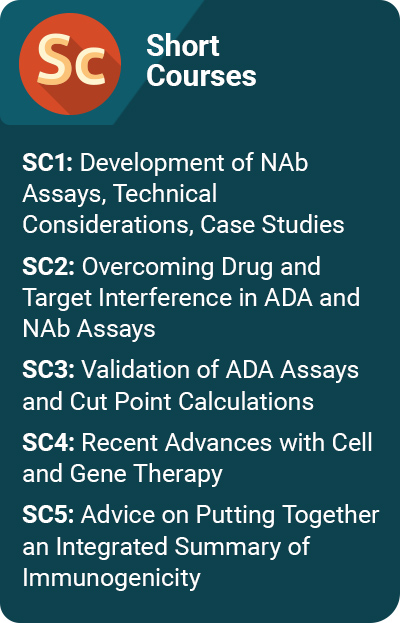2024年面对面型式的互动讨论
These in-person group discussions are open to all attendees, speakers, sponsors, and exhibitors. Participants choose a specific discussion group to join. Each group has a moderator to ensure focused discussions around key issues within the topic. This format allows participants to meet potential collaborators, share examples from their work, vet ideas with peers, and be part of a group problem-solving endeavor. The discussions provide an informal exchange of ideas and are not meant to be a corporate or specific product discussion. All group discussions will be offered IN-PERSON ONLY.
10月16日 星期三 | 2:20 PM
IMMUNOGENICITY ASSESSMENT & CLINICAL RELEVANCE
TABLE 1: Immunogenicity of Peptides
Mohsen Rajabi Abhari, PhD, Senior Pharmacologist & Lead Biologics, Office of Clinical Pharmacology, FDA CDER
Faye Vazvaei, Executive Director, Merck
TABLE 2: Recommendations for Harmonization of Neutralizing ADA Testing and Reporting
Michele Gunsior, PhD, Senior Director, Astria Therapeutics
TABLE 3: When One Size Does Not Fit All: Reevaluating Immunogenicity Risk Assessments and The 3-Tiered Testing Paradigm
Lauren F. Stevenson, PhD, CSO & Head, Translational Sciences, Immunologix Labs
- Revising our thinking on risk assessments-incidence without impact and the myth of the medium risk molecule
- Lessons learned from over 20 years of data generation-Perspectives on benefits and challenges with the current testing paradigm
- Mining all the data from the screening tier-How S/N analysis can help fill in the blanks and turn confusion into clarity
- Immunogenicity is a biomarker-Understanding context of use ensures we don't try to put square pegs in round holes and fail to measure what matters
- Rethinking the Nab testing tier-If Nab is important to understand, why wait? Differentiating what may be scientifically interesting vs what affects patient safety and efficacy
10月18日 星期五 | 9:30 AM
IMMUNOGENICITY PREDICTION & CONTROL
TABLE 1: HESI/AAPS: Towards Harmonization of in vitro T Cell Assays to Predict Immunogenicity of Biologics
Laurent P. Malherbe, PhD, Executive Director, Eli Lilly and Company
- Reference biologics for in vitro T cell assays
- Factors impacting in vitro T cell assays results
- Interpretation of the in vitro T cell assays results to assess the immunogenicity risk of biologics
TABLE 2: End-to-End Immunogenicity: Risk Assessment and Mitigation
Timothy Hickling, PhD, Investigative and Immunosafety Chapter, Roche
- How to build a risk assessment from the start of a new project?
- What does it take to mitigate product risk during molecule design?
- How realistic is clinical mitigation of immunogenicity?
TABLE 3: Immunogenicity of Next-Generation Modalities, Including Antibody-Drug Conjugates
Alexander Kozhich, PhD, Director, Bristol Myers Squibb Co.
- Immunogenicity risk assessment of novel modalities
- Immunogenicity de-risking next-generation modalities
- Bioanalytical strategy and methods
OPTIMIZING BIOASSAYS FOR BIOLOGICS
TABLE 1: HESI/AAPS: Potency Assays for Personalized Therapeutics Like CAR T Cells
Dawn Maier, PhD, Cell and Gene Therapy CMC, AD Preclinical Technical Advisor, DGMAIER Consulting
- What are the types of biological assays available?
- What are the challenges associated with those assays?
- Why is potency for personalized therapy more complex than traditional biologics?
- What are potential surrogate assays?
* 活动内容有可能不事先告知作更动及调整。
CONFERENCE PROGRAMS
